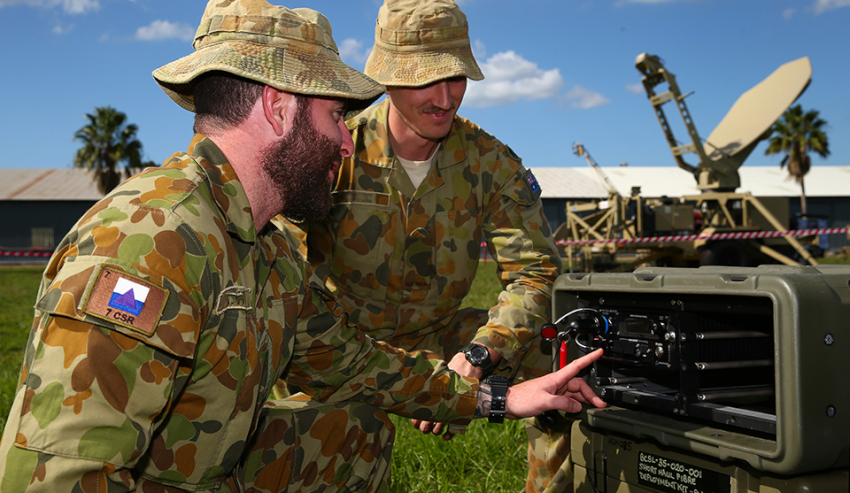The Next-Generation Technologies Fund (NGTF) is encouraging Australian universities and industry to participate in a new Intelligent Decision Superiority Research Network.
Intelligence, surveillance and reconnaissance (ISR) is a priority theme of the NGTF aimed at achieving integrated ISR in near real-time to support decision-making at the tactical and strategic levels.
Supporting this, the NGTF is inviting Australian universities and industry to participate in a new Intelligent Decision Superiority Research Network. This research network is aimed at developing automated systems to analyse, fuse and understand large volumes of data and free up Defence personnel to respond much faster to potential threats.
Masses of information are being communicated faster than ever before and Defence personnel need to identify credible material as quickly as possible to make better decisions to protect soldiers and the country.
Intelligent Decision Superiority seeks to leverage the wider science, technology and innovation capability in academia, industry and government research agencies to develop and demonstrate automated systems to analyse, fuse and understand large volumes of data and information to support decision superiority.
Research proposals are sought in the key areas of autonomous processing and reasoning, with a specific focus on:
- Multi-intelligence content analytics: Advances in content analytic techniques are required in order to better extract meaning from text, speech, image and video content, allowing for uncertainties and ambiguities, and express that meaning in a form amenable to automated reasoning. Advances in computer vision techniques leveraging machine learning, deep learning, and convolutional neural networks have brought a step-change in automated object detection and classification performance. The application of these techniques is increasing, however, reliable and automated object classification requires substantial and often prohibitive amounts of labelled training data.
- Cognitive information fusion: A deluge of data from multiple sources overwhelms the capacity of analysts and warfighters to extract useful information from the data. These sources include “physics-based” sensors, such as radars and imagery, and human intelligence sources, such as text from social media and web pages. Information derived using information fusion techniques can potentially include:
- Object assessments: the locations and kinematics of vehicles or aircraft; the beliefs, intents and desires of an individual; or abnormal behaviours of individual entities.
- Situational assessments: spatial relationships between entities; more abstract relationships between individuals such as social influence; models of normality and the detection of situations that are out of the ordinary.
- Impact assessments: predictions of likely adversary courses of action and their potential impact; predicting the outbreak of civil unrest.
Additionally, research proposals should include the following:
- A plan for a 2.5-year research program in autonomous processing and reasoning:
- Successful proposals will be initially funded for six months, with milestone reporting at three and six months, which will include the delivery of a literature review and scoping study exploring the intended 2.5-year work package. The research should represent novel and forward looking approaches to multi-intelligence content analytics and/or cognitive information fusion at a low to moderate technology readiness level (TRL).
- Outputs will be assessed at the six-month milestone and the Commonwealth may choose to extend the research agreement by up to an additional two years (to a total of 2.5 years) based on the literature review and the scoping study.
- Successful proposals are expected to be funded up to $100,000 in the first six months, and up to $500,000 per year in subsequent years, depending on scale, complexity and risk. Funding limits expressed here are provided as guidance for responses and may not represent the final funding position of the Commonwealth.
- Outputs are expected to include regular milestone reporting (every three months), including software for demonstrating developed technologies.
Applications close 21 December 2018. For more information or to submit a proposal, click here.



